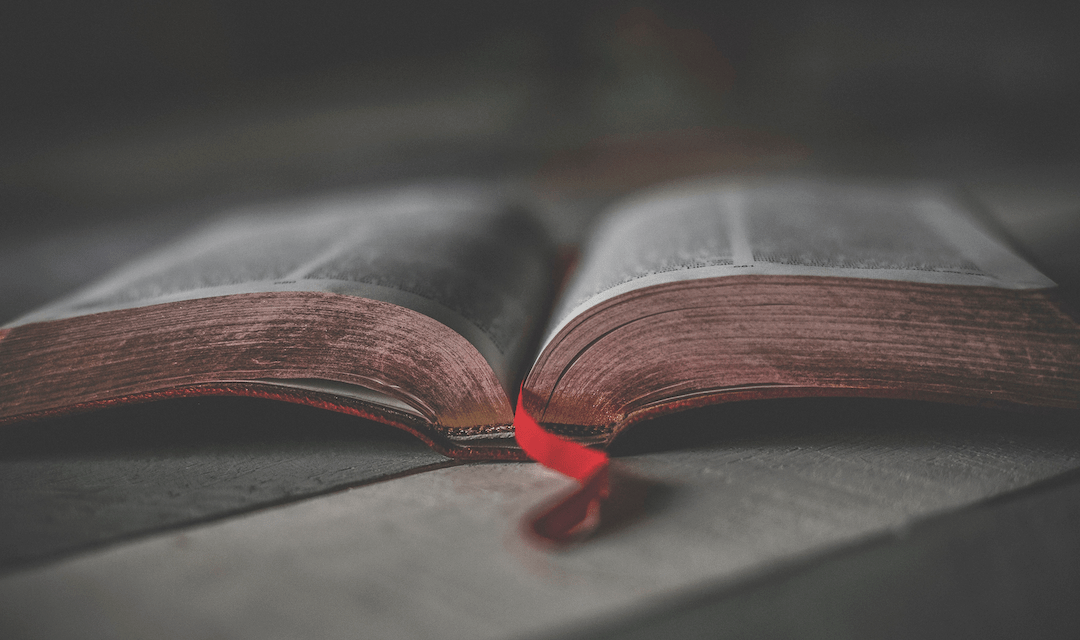Uncertain times. Fluid situations. Unprecedented conditions. Rapidly changing circumstances. Unforeseeable future.
The COVID-19 pandemic elicits many emotions as we grapple with our personal and collective vulnerably, finitude and lack of control. We are inspired by Christian leaders and pastors like Andy Crouch and Gordon alumnus Pastor Aaron Goodro ’96, who offer sound advice and creative innovations. Our social media feeds are flooded with hope-filled statements declaring God’s control, Christ’s redemptive power and the Holy Spirit’s promise of salvation. Such affirmations about God’s faithfulness quickly roll off our tongues to assure others . . . and, maybe more, to comfort ourselves. These are important trust-filled declarations in a time of deep uncertainty.
Over time, living with uncertainty might also lead to experiencing God as uninterested, distant, silent or even absent. Uncertainty can also have implications for our relationships with one another and become fertile ground for a scarcity mentality and acts of self-preservation, which breed competition and hostility. Responding to the emotions of anxiety, fear and despair matters right now.
How do these faith-filled proclamations move from our heads into our hearts? We believe God is faithful, yet how might this idea (residing in the cognitive) bring comfort to our emotions (beginning in the affective)? Following the pattern of God’s people through the Bible, we can take up the practice of remembering.
Christian practices are actions God’s people do together in response to God’s living presence in Christ by the Spirit. Practices tangibly demonstrate our love for God and neighbor. Examples include Sabbath, testimony, discernment, gratitude and hospitality. Practices are embodied experiences because they require an action we carry out. Because we engage our whole beings—mind, heart and body—our ideas about God will more readily comfort our fears.
Remember your family story: Anxiety finds peace
Everything in us cries to know what the future holds. Maybe if we discern what will be, we might be able to prepare for it, or maybe we will gain hope if we see the end result. It’s as if knowing the future holds the key to unlocking us from our fear and anxiety. But there is no key, and we remain locked in our present uncertainty. In our moments of anxiety, we wonder if God will be faithful? And when we do, we remember that we are wrapped into a family story much larger than our present reality. We can plant ourselves in this story because, as theologian Stanley Hauerwas says, “We are a story-formed people.”
The Israelites in Nehemiah 8 had just returned from generations of living in exile. They had lost connection with who they were as God’s people: they were physically separated from the Temple and could not participate in annual feasts, make sacrifices or hear the Law of Moses read. It should not surprise us that, like us, their memory waned. They forgot who they were.
But God remembered.
In Nehemiah 8:14–17, they enact a story of God’s faithfulness that belongs to their family history. Together they figured out how to practice the Feast of Booths, which recalled the Israelites wandering in the wilderness after fleeing Egypt. Their future was uncertain as they worked to resettle in Jerusalem, but their anxiety found peace as they rediscovered their family. Their family history held them steady amid an uncertain future. In our own unsteadiness, recalling our larger family story also moves our anxiety toward peace.
Remember God’s past faithfulness: Fear finds comfort
In Psalm 85, the Psalmist’s circumstances make him question if God has abandoned him when he says:
“Restore us again, God our Savior, and put away your displeasure toward us. Will you be angry with us forever? Will you prolong your anger through all generations? Will you not revive us again, that your people may rejoice in you? Show us your unfailing love, Lord, and grant us your salvation.” (Psalm 85:4–7)
What does the Psalmist do amid his fear? He remembers God’s past faithfulness when he states:
“You, Lord, showed favor to your land; you restored the fortunes of Jacob. You forgave the iniquity of your people and covered all their sins. You set aside all your wrath and turned from your fierce anger.” (Psalm 85:1–3)
Remembering the past evokes courage as he declares:
“I will listen to what God the Lord says; he promises peace to his people, his faithful servants—but let them not turn to folly. Surely his salvation is near those who fear him, that his glory may dwell in our land.” (Psalm 85:8–9)
When life’s uncertainty evokes fear, practice remembering as God’s people. We are learning how to do this virtually and can make digital proclamations together such as these:
- We remember God’s deliverance of the Hebrew people from slavery in Egypt when we aren’t experiencing deliverance.
- We remember God’s mercy to the Ninevites when we don’t see God’s mercy.
- We remember God’s covenantal promises when we can’t see how the promises will ever be true.
- We remember to rejoice in Christ’s healing of the bleeding woman when healing is not in sight.
- We remember to celebrate Christ’s resurrection with Mary when we have no evidence of redemption.
- We remember to sing “Great is thy faithfulness” even when we aren’t experiencing it ourselves.
Remember to imagine the future: Despair finds hope
Warren Brown and Brad Strawn in their book The Physical Nature of the Christian Life apply research in neuroscience and psychology to the Christian life. They describe the ways in which stories shape our brains. When we hear a story, we “imaginatively simulate the behaviors being narrated. The process of understanding the actions of persons in a story requires that the systems of our brain that control our own behavior become engaged in a process of internally stimulating the actions that constitute the story.” Our brains literally put us into the narrative’s action. We have simulated experiences as we make sense of the story, and we see ourselves as participants. Brown and Strawn argue that stories “regulate imagination with respect to what is possible—what is likely to happen, what can and what should be accomplished.” Philosopher Paul Ricoeur defines imagination as a distinctively human quality that holds the power to change both human beings and subsequently the world we inhabit. When our imaginations are touched, our will follows.
The Bible is full of biblical characters propelled by imagination. Imagination . . .
- . . . enabled Noah to build an ark.
- . . . was in Sarai’s giggle at the thought of having a baby in her old age.
- . . . freed Moses to believe God and lower his staff to part the Red Sea.
- . . . led Jonah, post-fish, to declare God’s forgiveness to his enemies.
- . . . sustained Queen Esther as she took a risk and asked the king to save her people.
- . . . allowed Mary to believe she would give birth to a Savior.
- . . . drove John the Baptist to prepare the way for someone greater.
And right now, we are God’s people whose despair can find glimpses of hope when our imaginations break out into trust-filled declarations that God will be faithful even when we don’t yet know what that looks like.
We will continue to make faith-filled proclamations of God’s faithfulness during the coming months. Let us also “encourage one another and build each other up” (1 Thessalonians 5:11) by recalling our family story, practicing remembering God’s past faithfulness and imagining the future. By the powerful work of the Spirit, who does far more than we can do ourselves, our anxiety finds peace, our fear comfort and from our despair emerges hope. God is with us.
Written by Sharon Galgay Ketcham, Ph.D.
Professor of Theology and Christian Ministries
*adaption of the Freitas lecture given at Asbury Theological Seminary, 3/5/20
https://asburyseminary.edu/students/chapel/archive/?service=20200305&campus=ky

